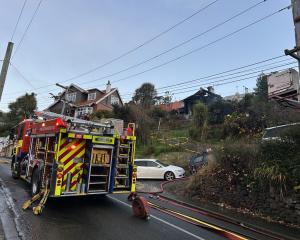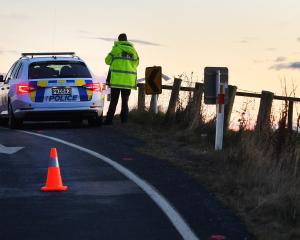The possibility of a commuter rail service in Dunedin has continued rolling forward after Dunedin city councillors on Thursday overwhelming voted in favour of a study into a union-backed trial.
The Dunedin City Council planning and environment committee voted 13-2 for a report into a feasibility study to come before council’s annual plan deliberations at the end of May.
Cr Jim O’Malley, who last year ran for mayor citing a commuter train service between Mosgiel and central Dunedin as one of his priorities, said the numbers stacked up.
A railway had to have a population density that would warrant a commuter service and there were now, he said, 30,000 car movements every morning on the Southern motorway.
Further, he said, of those vehicles 75% were destined for the city centre.
A park ’n’ ride at Mosgiel could allow 300 to 400 cars to be left in the outlying suburb every morning.
"If we don’t get large numbers that will be the last time you hear me speaking about commuter rail in Dunedin."
Cr Lee Vandervis, who with Cr Mike Lord opposed the plan, said the rail system was not viable "pre-Covid" and councillors needed to recognise "when something simply doesn’t work".
"The interest in rail needs testing just as the interest in subsidised helicopter rides might need testing.
"Actually, no they don’t. Subsidised helicopter rides are never going to be a viable transportation system for Dunedin and neither is commuter rail."
Comments
A well researched study that encompasses all costs and requirements will at least offer some answers and clarity for debate. All these different folk with different and unresearched numbers and scenarios doesn't offer any real idea of the costs/returns.
There may actually be some very real benefits that we're not fully understanding. If not, well, that brings it to a conclusion. As a society, we owe it to ourselves and future generations to at least take a closer look. 30,000 car movements each morning is a heck of a lot. Fuel, oil, tyres, wear and tear on the road, pollution and the cost of accidents/delays......sadly, it will all only increase with population growth.












